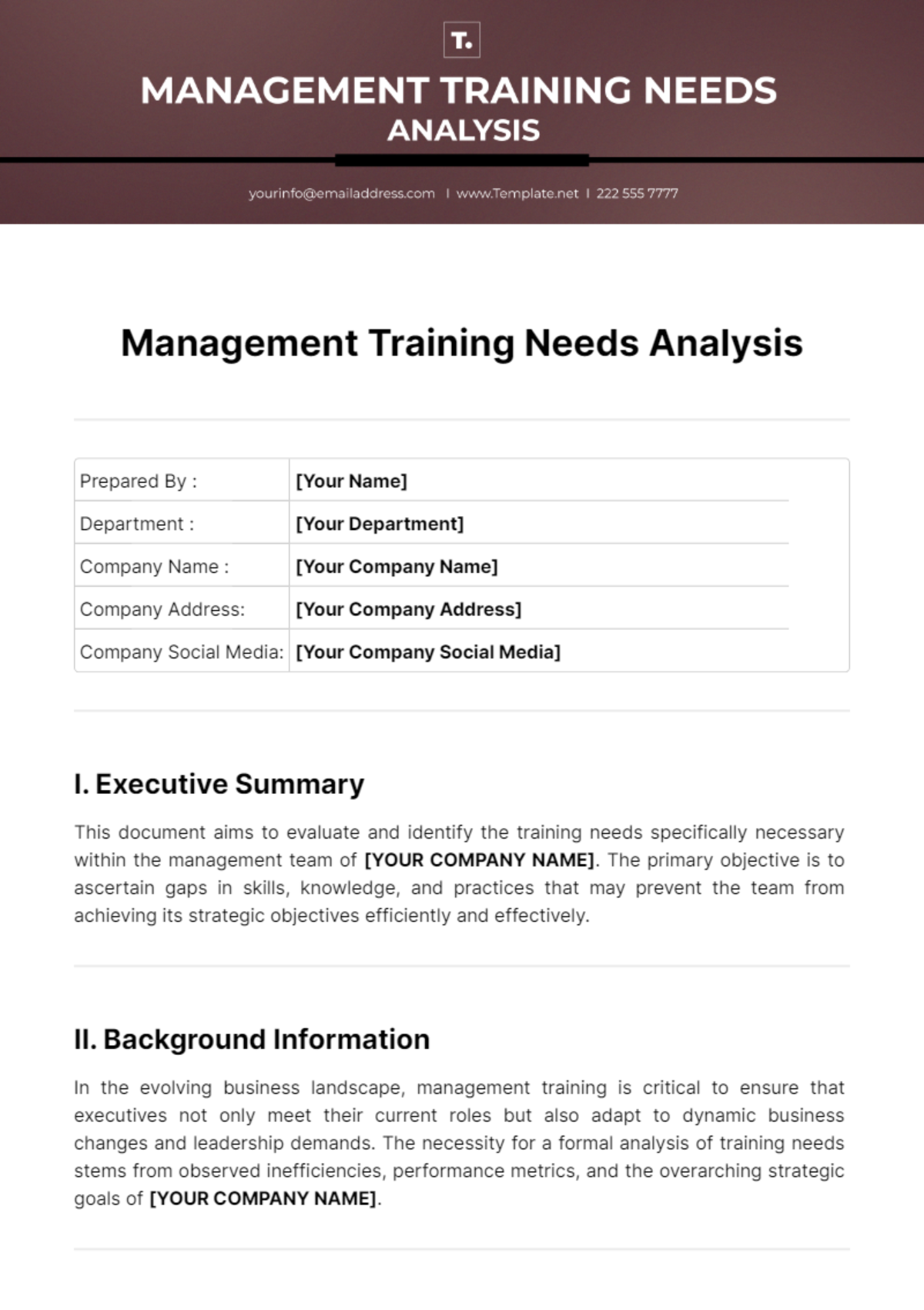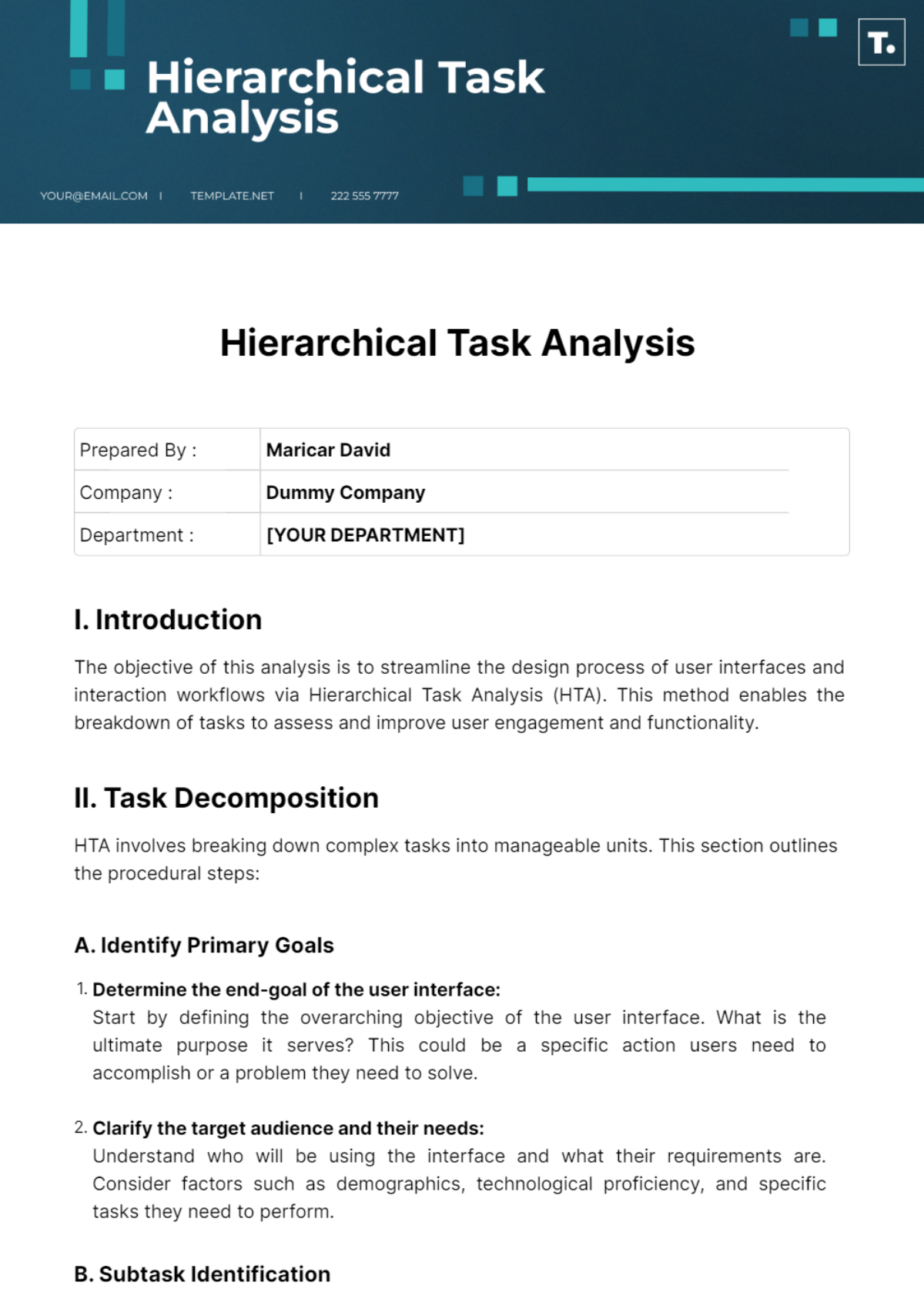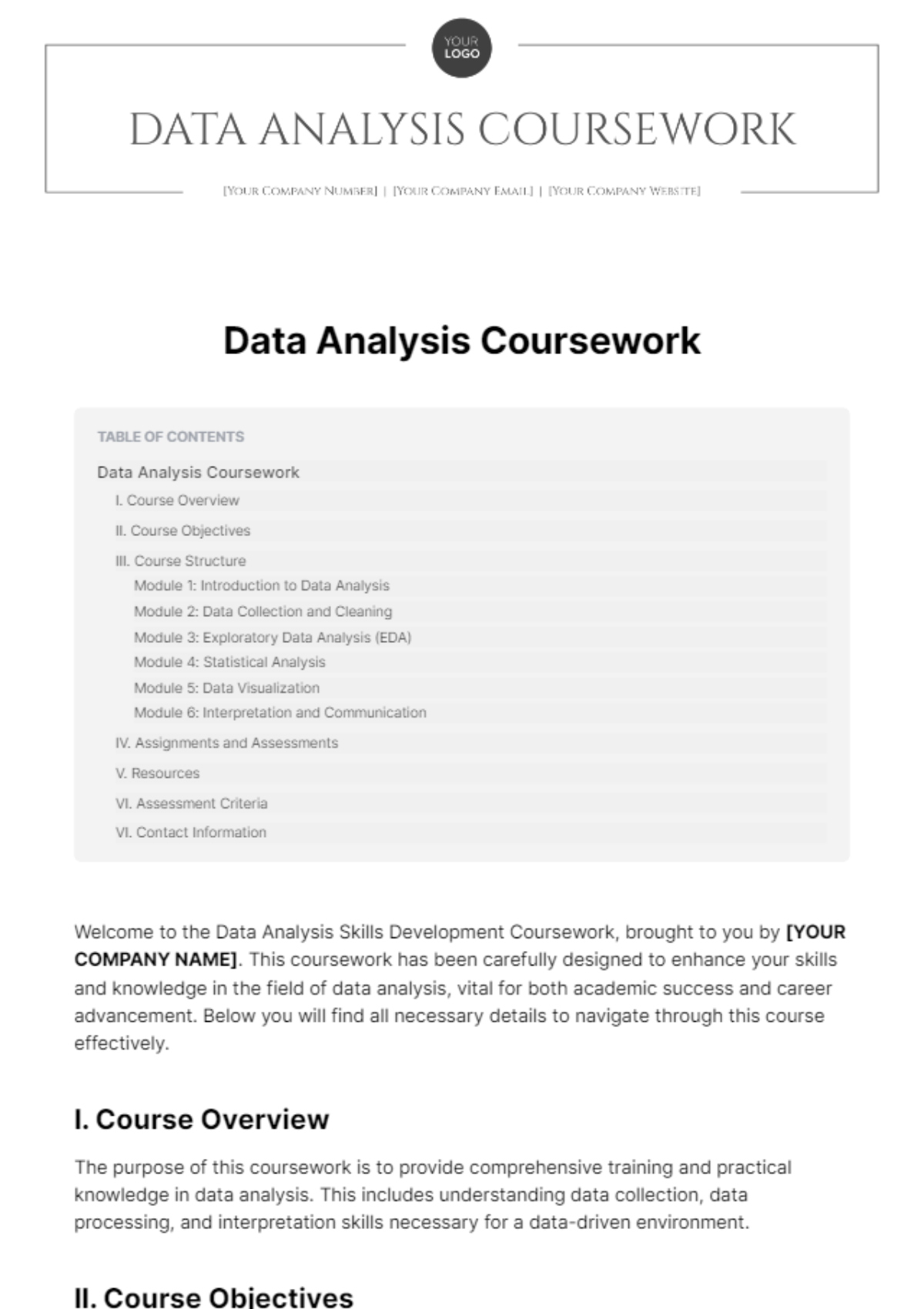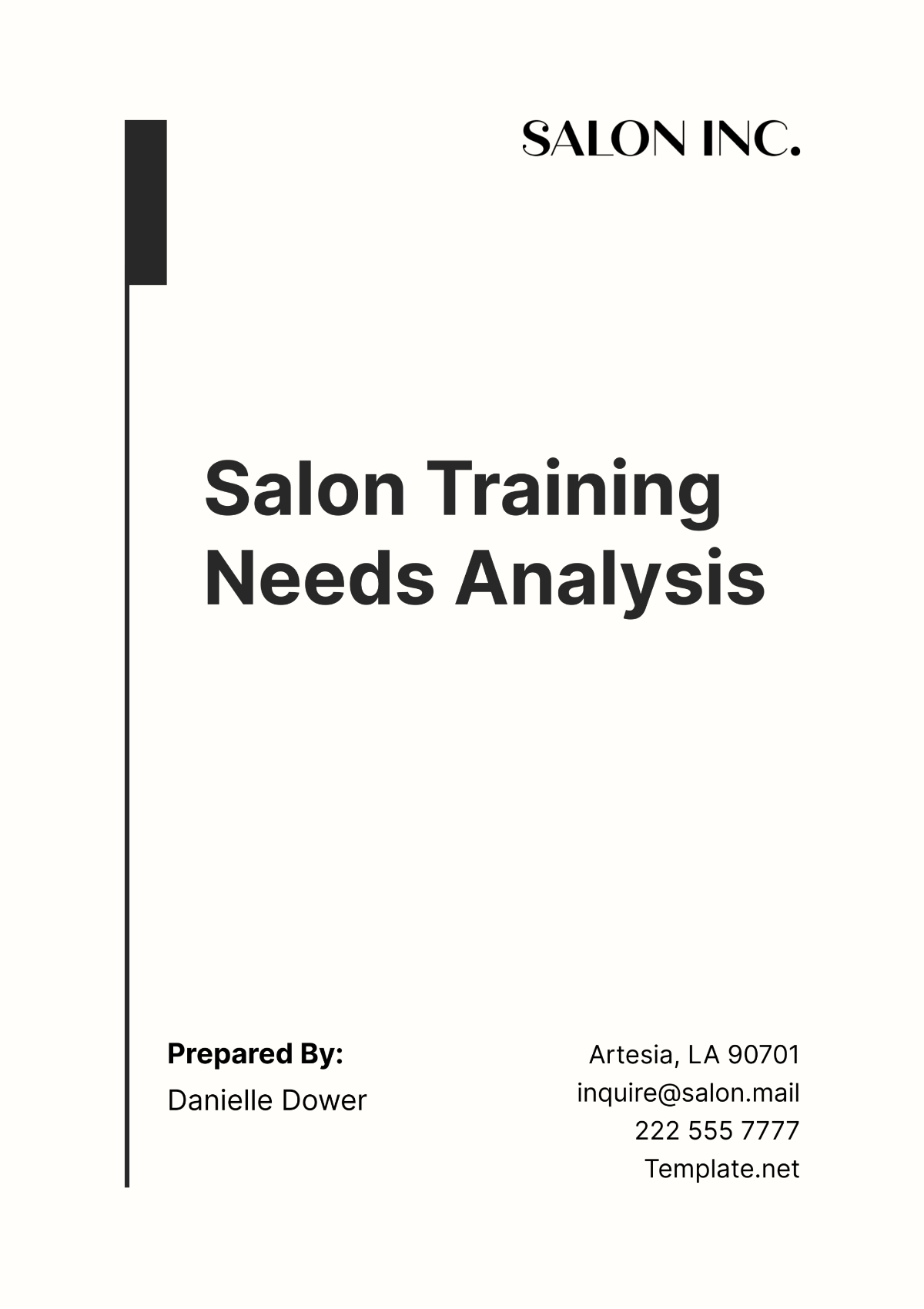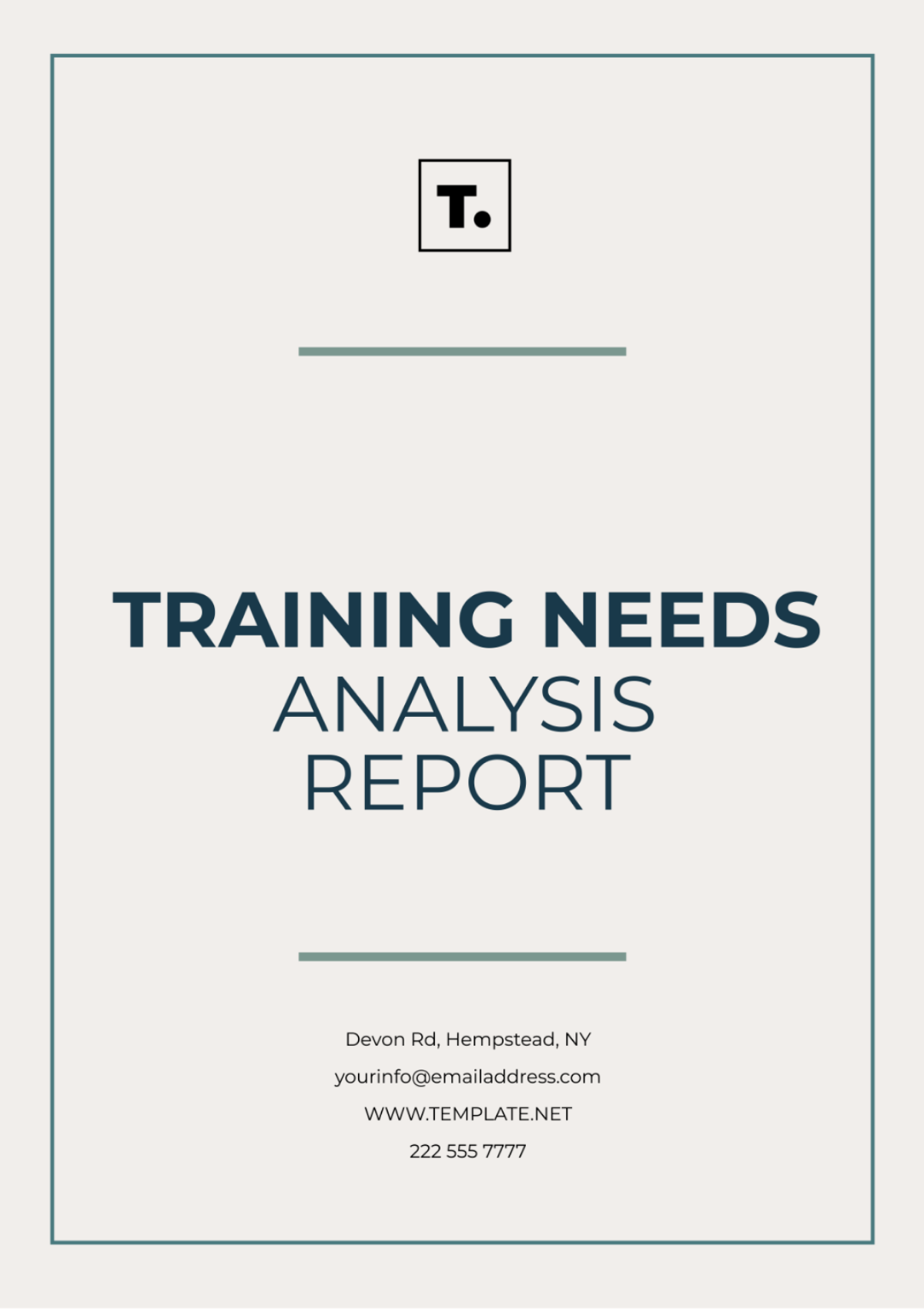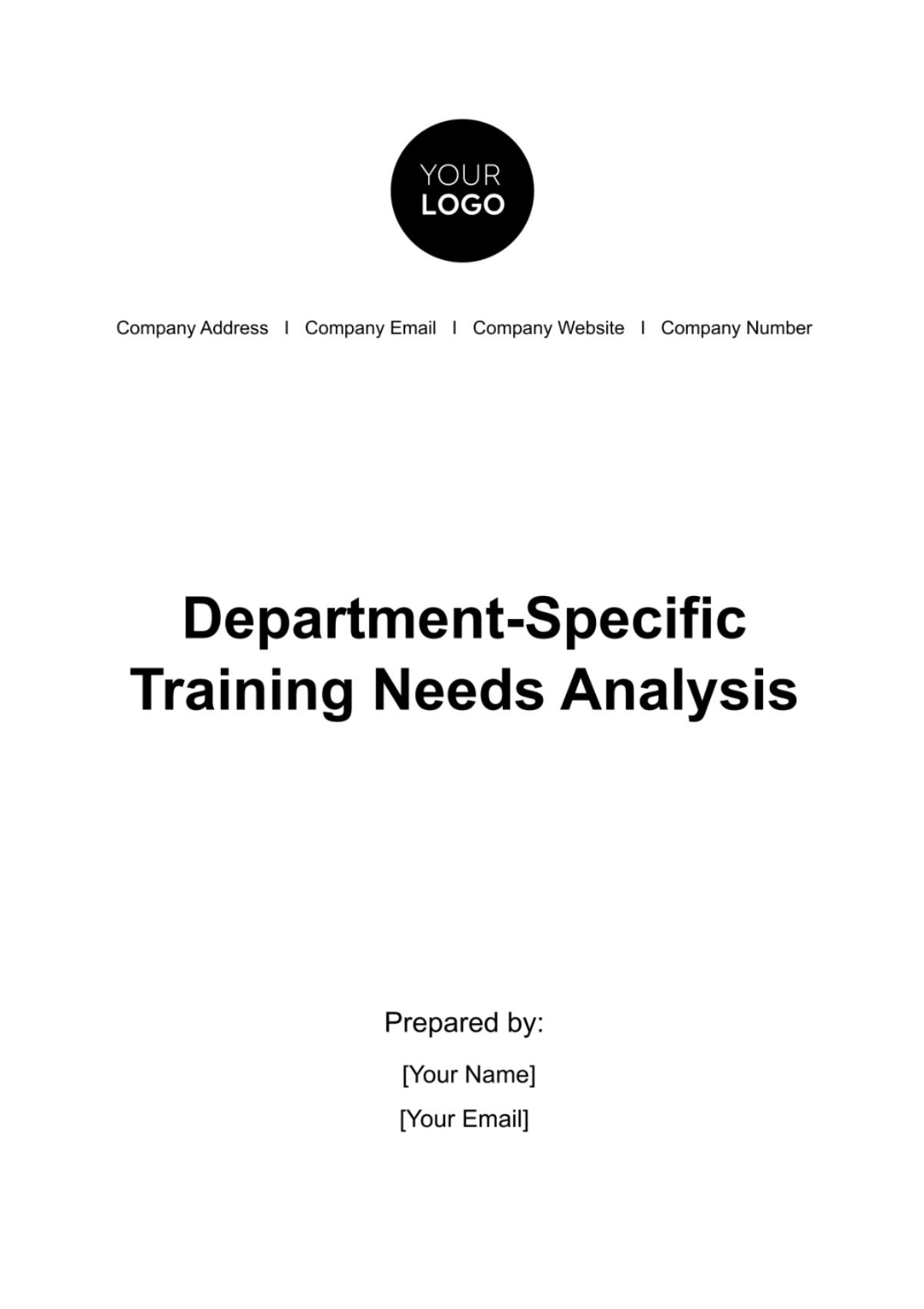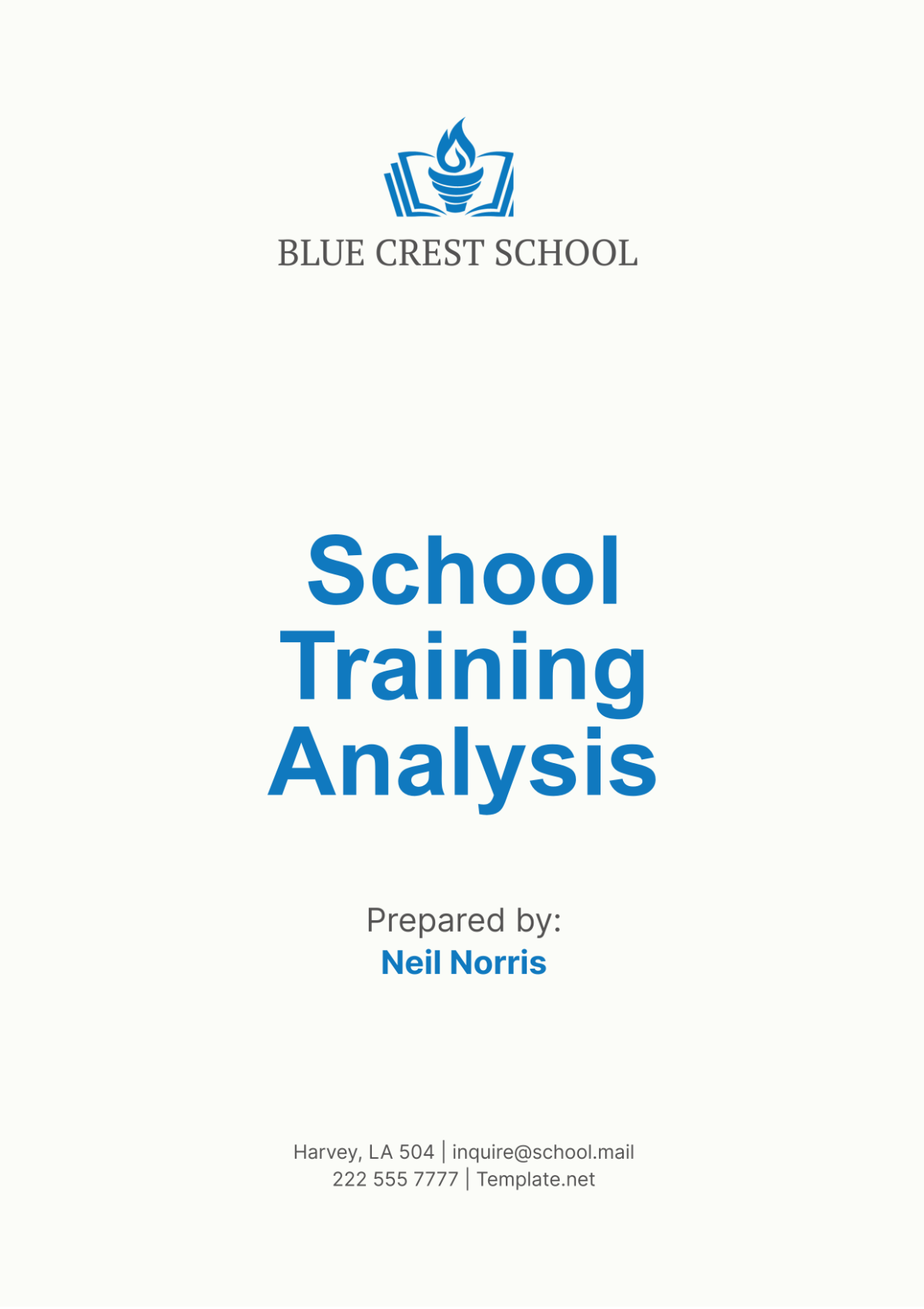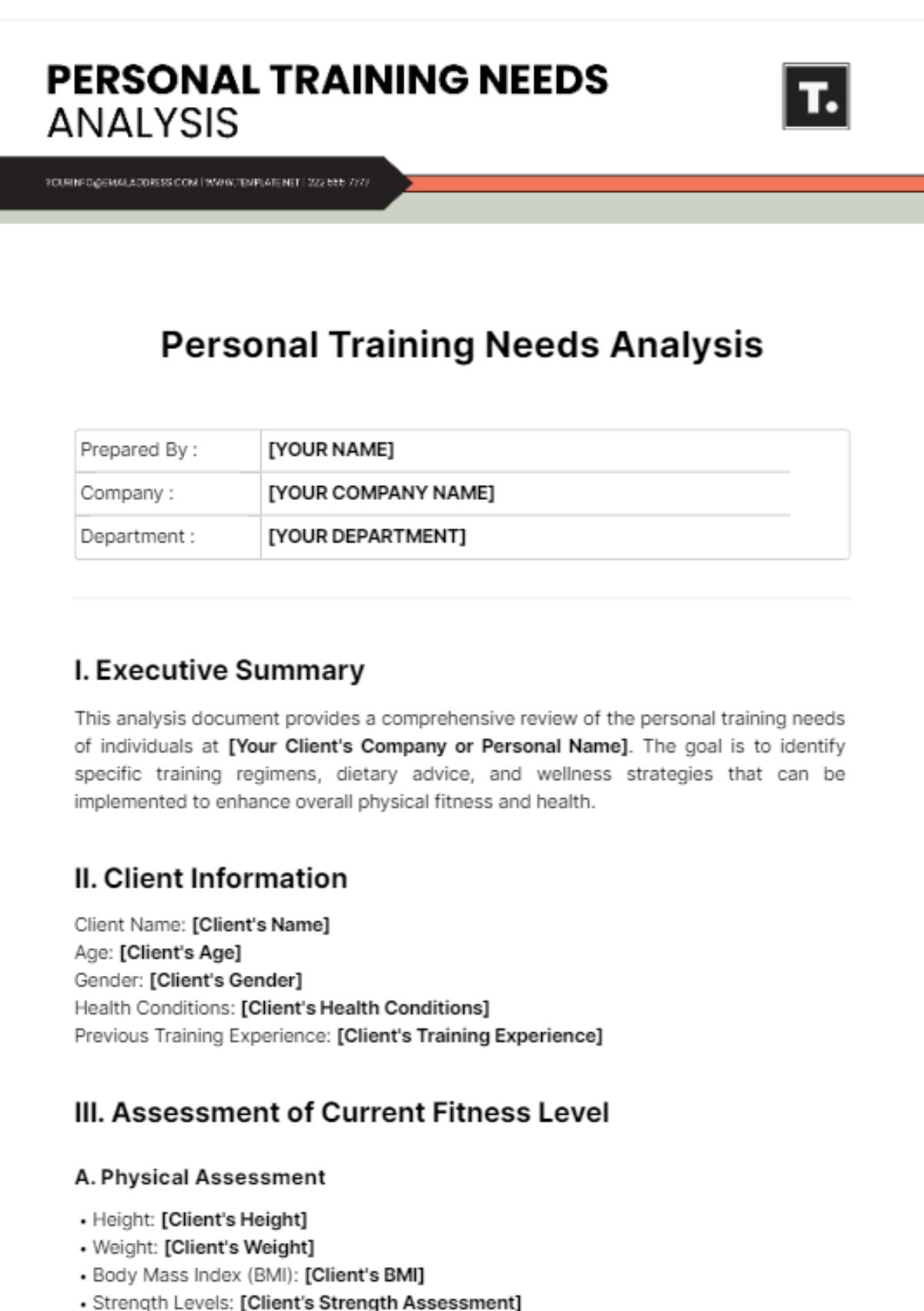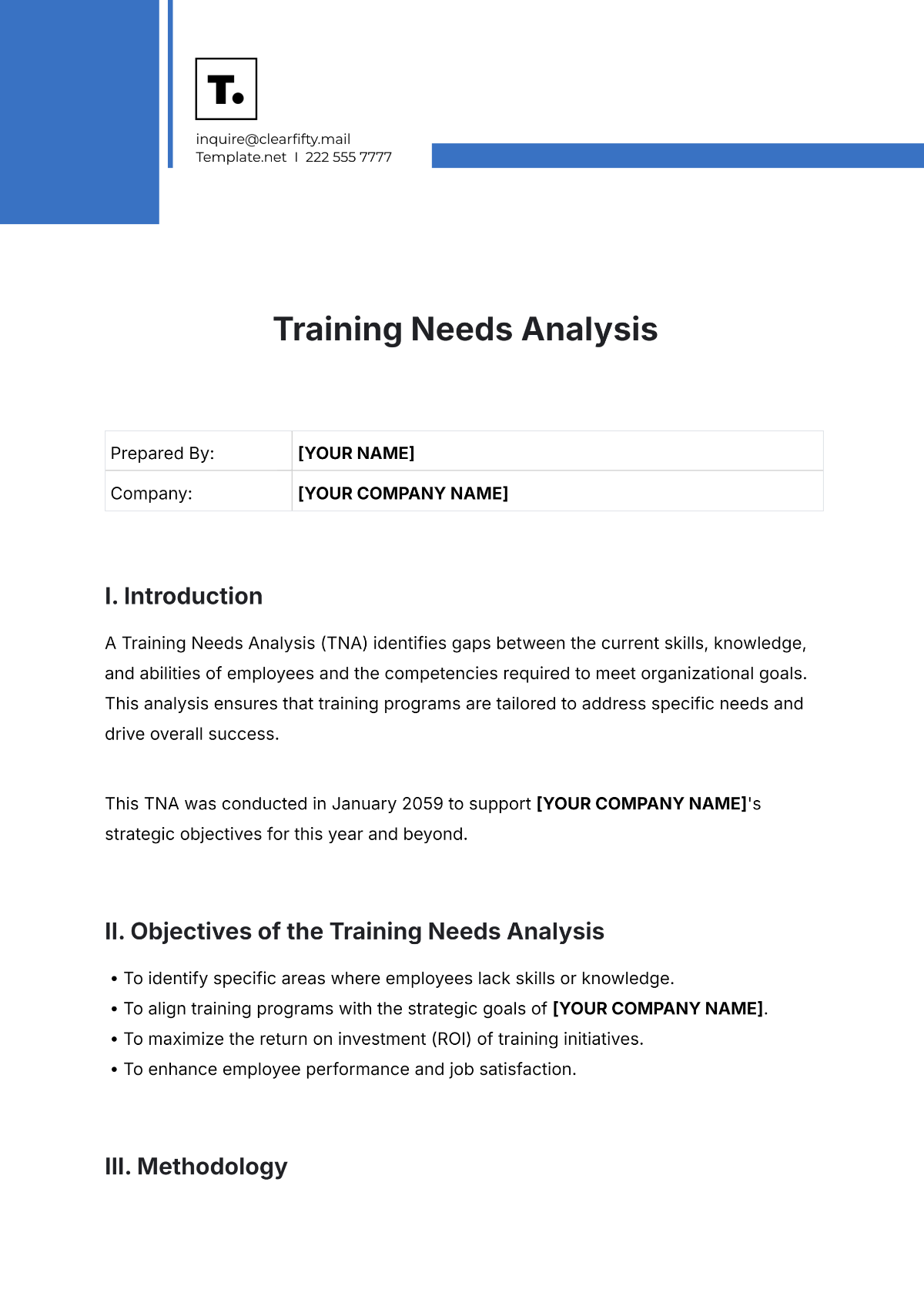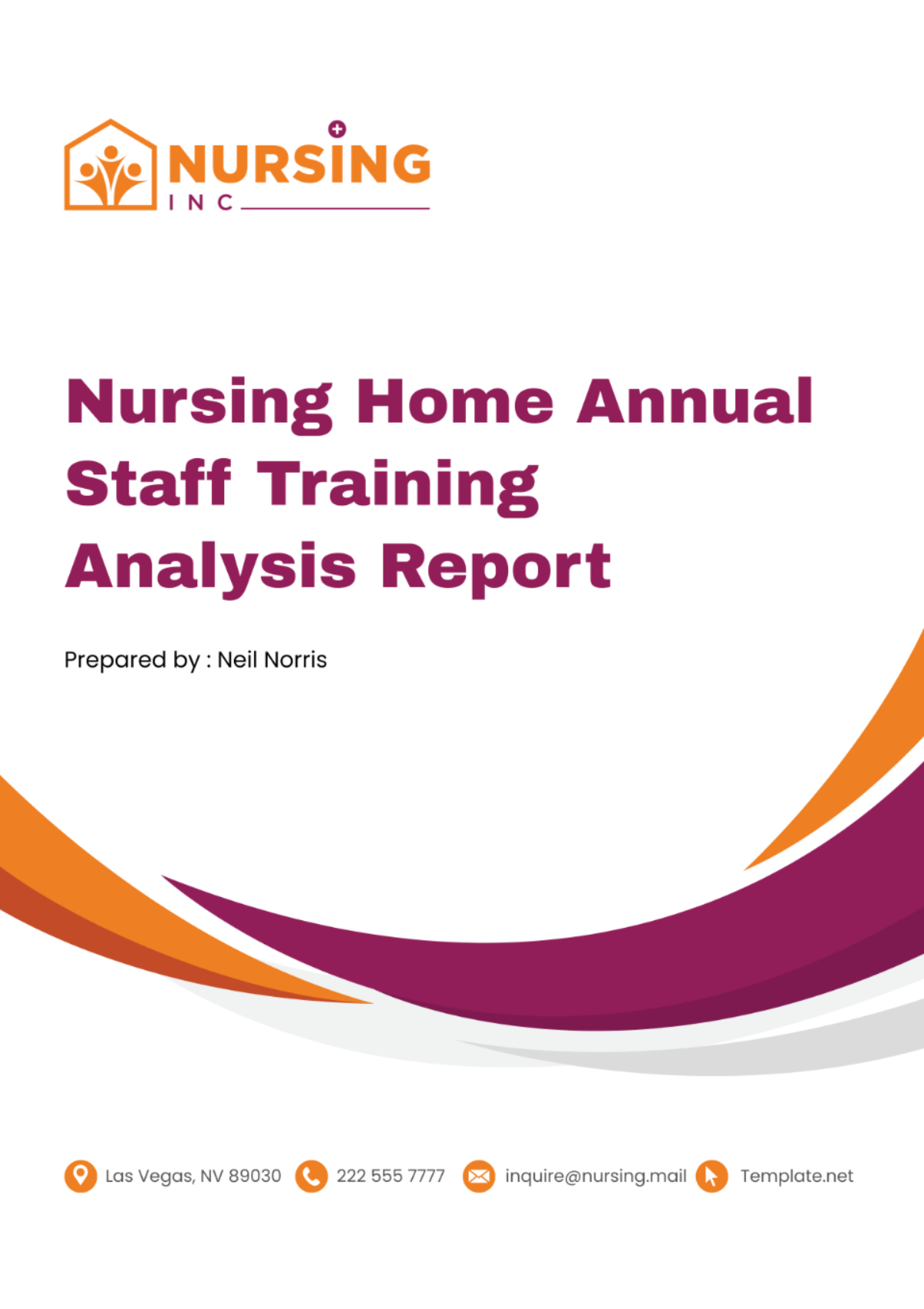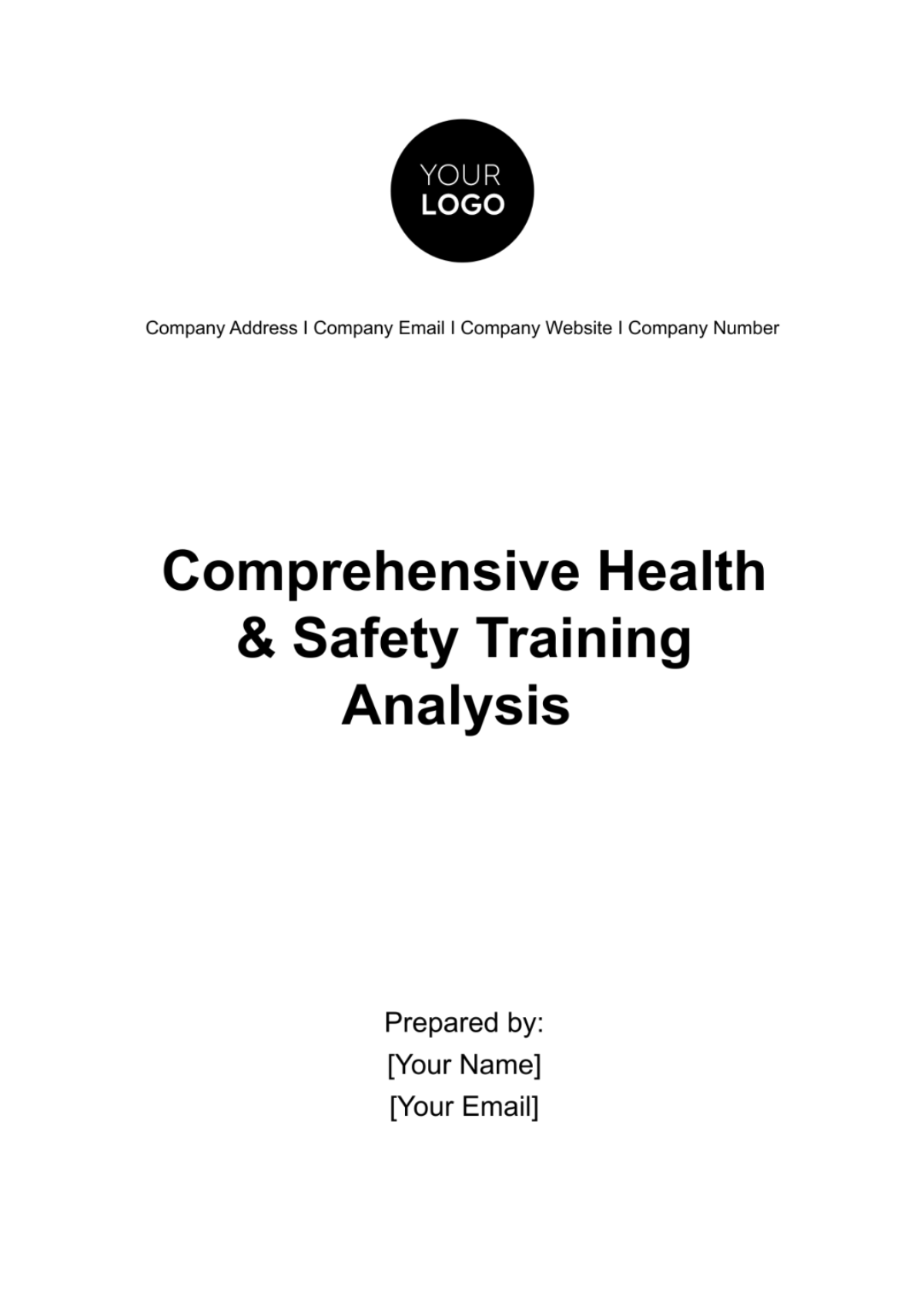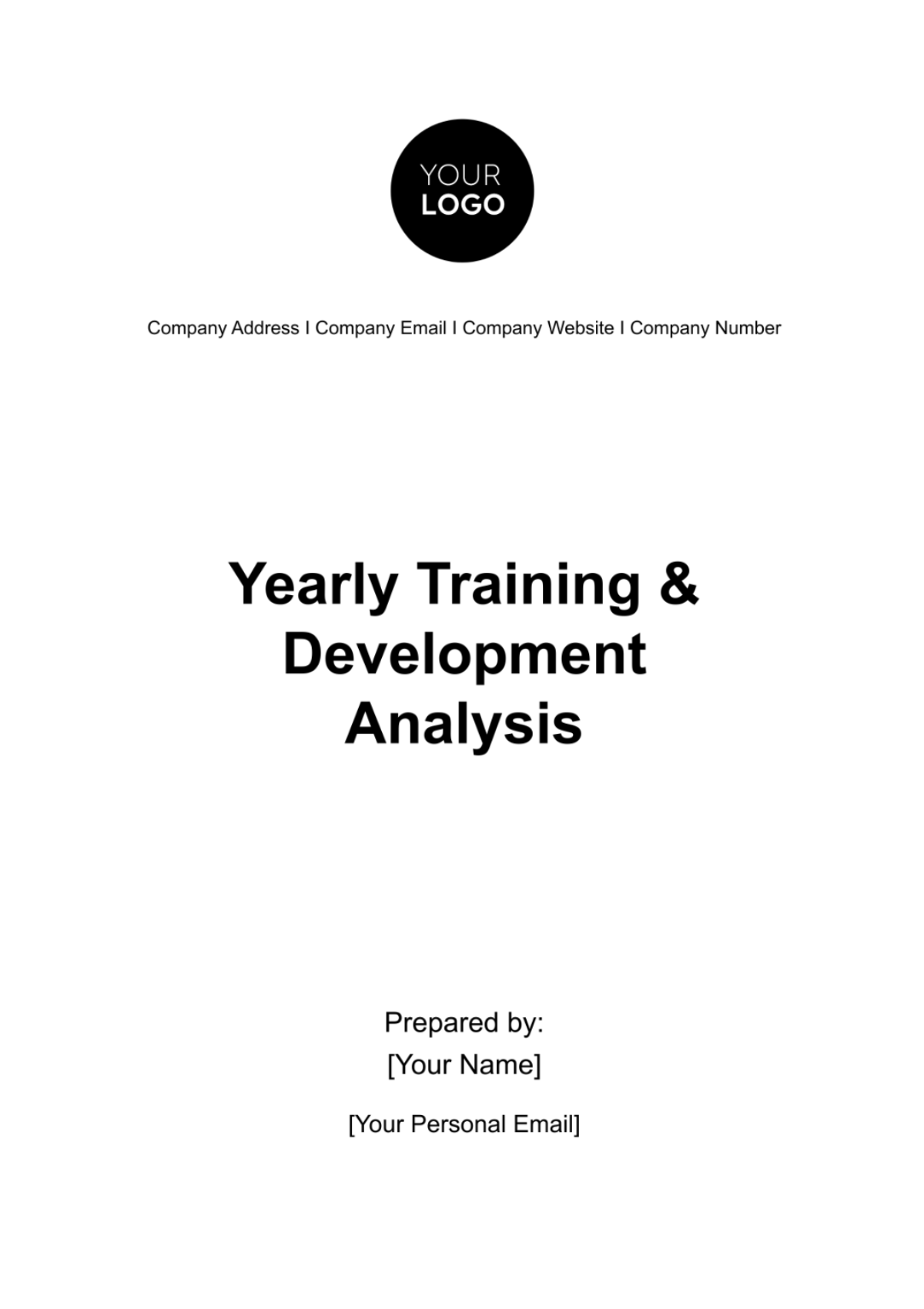Management Training Needs Analysis
Prepared By : | [Your Name] |
Department : | [Your Department] |
Company Name : | [Your Company Name] |
Company Address: | [Your Company Address] |
Company Social Media: | [Your Company Social Media] |
I. Executive Summary
This document aims to evaluate and identify the training needs specifically necessary within the management team of [YOUR COMPANY NAME]. The primary objective is to ascertain gaps in skills, knowledge, and practices that may prevent the team from achieving its strategic objectives efficiently and effectively.
II. Background Information
In the evolving business landscape, management training is critical to ensure that executives not only meet their current roles but also adapt to dynamic business changes and leadership demands. The necessity for a formal analysis of training needs stems from observed inefficiencies, performance metrics, and the overarching strategic goals of [YOUR COMPANY NAME].
III. Current Skills Assessment
Managerial Roles | Strengths | Areas for Improvement |
|---|---|---|
Executive Management | Strategic planning, decision-making | Delegation, mentoring |
Operations Management | Efficiency, process management | Technological proficiency |
Sales Management | Revenue generation, customer relations | Sales forecasting, team leadership |
Human Resources Management | Recruitment, employee relations | Conflict resolution, performance management |
Financial Management | Budgeting, financial analysis | Risk management, strategic investments |
A. Managerial Roles
Executive Management: Oversees overall strategic direction and decision-making.
Operations Management: Manages day-to-day operations and ensures efficiency.
Sales Management: Leads sales team and drives revenue generation.
Human Resources Management: Handles HR functions including recruitment and employee relations.
Financial Management: Manages financial resources and budgeting processes.
B. Performance Evaluation
Performance evaluations were conducted in January 2050.
IV. Future Skill Requirements Analysis
A. Industry Trends
Technological advancements in AI and automation are reshaping industry practices.
Shift towards sustainability practices due to increasing environmental concerns.
Growing emphasis on personalized customer experience to drive loyalty.
B. Organizational Goals
Expand market share by 20% by the end of fiscal year 2051.
Enhance product innovation capabilities to launch three new products by 2053.
Improve employee retention rates by 15% by the end of 2054.
V. Gap Analysis
A. Skill Gaps Identification
Leadership development skills: Lack of effective delegation and mentoring abilities.
Data analytics proficiency: Limited understanding of data interpretation and utilization.
Change management expertise: Resistance to organizational changes and lack of communication skills.
B. Training Needs Prioritization
Leadership development is identified as a top priority due to its impact on overall team performance.
Data analytics and change management are recognized as crucial for driving innovation and managing transitions effectively.
VI. Training Objectives and Recommendations
Training Objectives | Recommended Training Methods | Resource Allocation |
|---|---|---|
Increase leadership effectiveness | Quarterly leadership workshops, mentoring programs | $50,000 annual budget allocation |
Enhance data analysis skills | Online data analytics courses, workshops on statistical analysis | Dedicated HR personnel oversight |
Improve change management capabilities | Annual change management seminars, role-playing exercises | Scheduled time slots for training sessions |
VII. Evaluation Plan
Measure leadership effectiveness through 360-degree feedback surveys conducted biannually.
Assess data analysis skills through pre and post-training assessments, with follow-up evaluations every six months.
Monitor change management success through project outcomes and employee engagement surveys.
VIII. Conclusion
The Management Training Needs Analysis highlights critical areas for skill development within our management team. By investing in targeted training programs, we aim to equip our managers with the necessary skills to drive organizational success.

